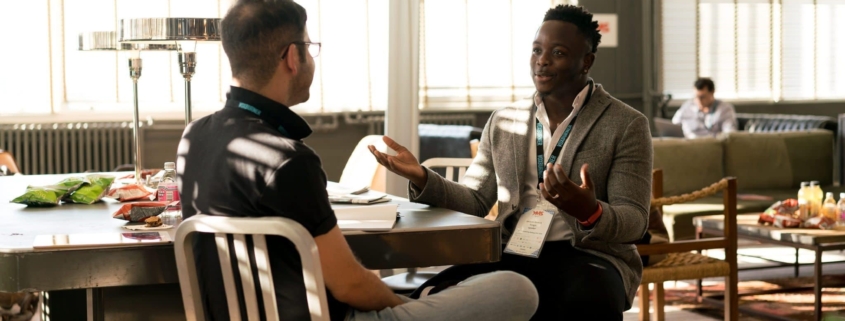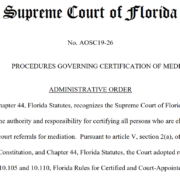“Getting What You Want in Mediation”
“Getting What You Want in Mediation”
By Stanley Zamor
(January 2018)
Set The Stage
As the parties entered the room, I stood smiling and welcomed each person as they took their seat around the conference table. I stood at the head of the table and observed the perfectly quaffed group of 10, they all seemed to share the same blank expressionless face. Something recently happened… And that something was not good. As each side gave their opening statement they mentioned the results of a Summary Judgement hearing that took place just 2 hours prior to the commencement this mediation. The judge made a partial ruling that both parties claimed to give them some sort of victory.
In brief, for over 3 years of litigation multiple businessmen, in two consolidated cases, spent millions of dollars to prominent law firms to keep pushing their positions until the eve of trial. But now, after long eloquent statements outlining how the law supports their position(s), I asked them something that seemed to perplex the entire group. I asked, “Now that we have heard each perspective and how right each party thinks they are; what do you want?…” They all agreed that they wanted finality and (read below for the rest). I said, “Good. Then let’s get to work…”
At The Ready…
One of the difficult defining points of mediation is to reduce the barriers of communication. Litigation is innately adversarial in tone and process. Mediation conversely encourages collaboration while reframing the tone of the dispute, to where parties may feel able to design their own resolution.
Often, once a case is filed in court, disputants never see each other outside of a court related event. Since mediation is an informal process, disputants have an opportunity to use their own words during mediation in a conversational tone, and not only in the usual adversarial posture. A skillful mediator can use that opportunity, to shape the discussion to where both parties can feel heard/good about being flexible and seeing where resolution may creatively lie.
Mediation will not replace litigation, it is simply an option that works when parties need an alternative. Legal rights and duties are important but many times when parties are given a neutral space to express what they want, they are able to resolve issues themselves.
Their Wants:
So, what did these disputants want, and did mediation give to them? The following are a few of the things that the disputants told me they wanted and after a 5 hour mediation, they created an agreement that was satisfied with:
- Someone to admit wrong and to be held accountable,
- To be able to move forward and beyond that business dispute,
- To take the lessons learned and establish better systems to limit/protect themselves from future litigation,
- To recoup/cover a portion of monies spent on legal fees,
- To make more money, smarter.
Stanley Zamor is a Florida Supreme Court Certified Circuit/Family/County Mediator & Primary Trainer and Qualified Arbitrator. Mr. Zamor serves on several federal and state mediation/arbitration rosters and has a private mediation and ADR consulting company. He regularly lectures on a variety of topics from ethics, cross-cultural issues, diversity, bullying, and Family/Business relationships.
szamor@effectivemediationconsultants.com
www. effectivemediationconsultants.com
www.LinkedIn.com/in/stanleyzamoradr
(954) 261-8600








